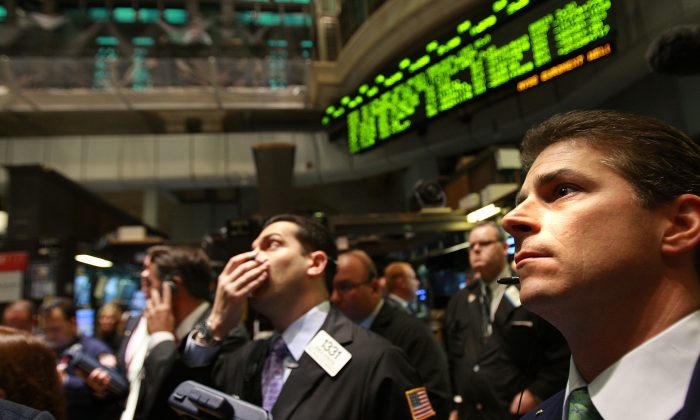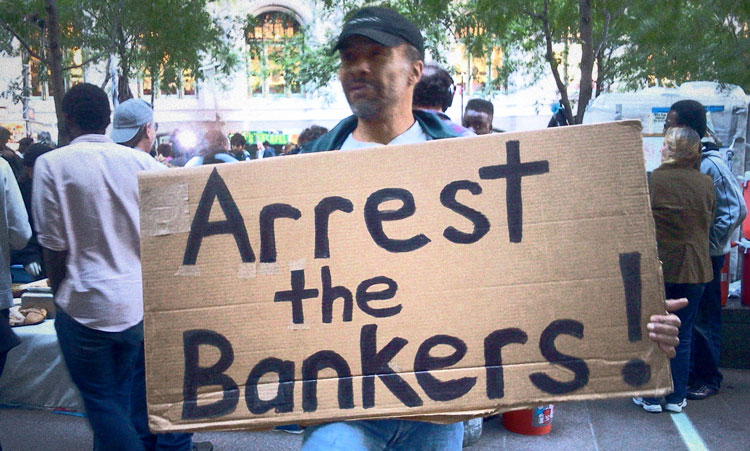It probably says a lot that I can clearly remember this article, a full decade on, down to being able to remember the title, and some of the lines. It really did look like Armageddon at the time. In the autumn of 2008, the Western capitalist model of the world was staring into the abyss, and no one could be quite sure we wouldn't go crashing down into it.
I couldn't explain what caused it. I'm not sure, even now, anyone could explain for certain the causes, without either being very biased, or so technical no one understood them. But, with a handful of exceptions, most people did not know what was coming. Until the end of 2008, there had been gathering storm clouds, but most of it was hidden from full view. In late 2007, there'd been a run on Northern Rock, and the government had been forced to nationalise it. In the United States, there were serious concerns over the state of the mortgage market. But for most people, these were concerns in a far away land, that of economics, that none of them really understood.
Until on September 15th, 2008, the US investment bank Lehman Brothers filed for bankruptcy. It wasn't a bank in the sense most people understood. They had no branches, no current accounts of individuals. Instead, they dealt with the money of companies, taking it and investing it in other things, to look for a return. During the 1990s and 2000s, many banks had done this more and more. The lines between 'high street' banks and 'investment' banks was increasingly blurred. More worryingly, no one really knew where all this money, and associated debt, actually was. When Lehman Brothers, one of the oldest and most venerable names in world finance, applied for bankruptcy protection, this sent shockwaves around the system. Someone had owned up to how bad this situation was. The image of bankers, the new frontier of the 21st century economy, emptying their offices in cardboard boxes, showed how the mighty had fallen.
What made it worse was the Bush administration. Saddled as we are now with Trump, it is hard to think back on how awful Bush was. In the dying days of his presidency, Bush had found himself having to hand out money to mortgage lenders and banks. In September 2008, he decided enough was enough. His administration wouldn't get Lehman Brothers out of the hole they had fallen in to. They would be allowed to collapse.
Big mistake. This turned alarm into a full blown panic. Around the world, banks stopped lending money, as they were afraid of getting themselves into more and more debt. People and companies who had put their money into these labyrinthine schemes began to withdraw it, afraid it would all be lost. With the money supply freezing up, ordinary businesses found themselves out of money too.
In an intertwined global financial economy, the contagion and chaos in the USA spread around the world like wildfire. In the UK, the banks of the City of London found themselves buffeted by the same storms. But the UK's banks were slightly different. The same banks dabbling in international investment schemes were those that people held their money in. If they went down, all hell would break loose. Alistair Darling, the then Chancellor, has since said he was afraid of a breakdown of law and order if the most exposed bank, RBS (containing Natwest and Ulster Bank), closed.
The Bush administration realised it had made a grave error. In the parlance of the time, they had tried to show that no one was 'too big to fail.' And they'd turned a problem into a crisis. As September faded into October, the US Treasury Secretary, Hank Paulson, devised a plan to put up $700 billion, to 'hoover up' the debt that no one really knew who owned it. The US House of Representatives voted the plan down, wiping billions off of the world stock markets. Days later, they accepted a modified version of Paulson's plan. But the world money markets failed to respond. The money supply was still jammed.
Enter the unlikely hero of the hour.
Since then, Gordon Brown has got a lot of bad press. He was not a telegenic politician, and inspired loathing and contempt in many. But he had the best economic brain in the land, and this was his hour. Between Brown and Darling, they unveiled a plan which did two things. Like in the USA, it would take the worthless debt out of the banks' hands. But it would also see the UK government take shares in banks in danger of collapse. In effect, those banks would be backed by the full weight of the UK economy. This worked. The pressure on them eased. In the USA, Paulson used his new powers to copy Brown's plan. As 2008 turned into 2009, the immediate crisis passed. In late 2008, Gordon Brown slipped up at Prime Minister's Questions. He meant to say the government had saved the banks; he accidentally said saved the world. The Tories opposite mocked him mercilessly. But he was right.
All of us have lived with the consequences since. In the short term, the lack of money available for companies and businesses led to a deep, painful recession, the worst in living memory. The £500 billion that Brown and Darling poured into the UK financial markets left the government in massive debt. When Labour went down to electoral defeat in 2010, the new Coalition government made it a priority to pay those debts back, which it did by sharply cutting spending on other government services. In the UK, this double whammy of deep recession and government cutbacks has led to what many have termed a 'lost decade.' My generation, those of us who came into the workforce during this lost decade, will live with the impact of the autumn of 2008 forever, as it forecast we will never catch up with our parents, or those below us, in terms of lost earnings.
But it is the psychological impact that has lingered most. At the time, there was outrage that the greed of investment bankers had taken us to edge of the precipice, peered over, and nearly taken the entire Western world with them. 'Banker bashing' became an accepted part of life, and it became toxic to say that you worked in the City of London, or on Wall Street. But those responsible were not held to account, save in some minor and token ways. The decade of low growth and austerity that followed wouldn't have been solved by jailing some City of London executives. But the notion did take hold that those at the top had wreaked havoc, and had been allowed to get away with it. It was believed that the notion, of those in far away places living it up at the expense of those struggling to get by, would benefit political parties of the left. Instead, it is the populist right that has seized the narrative and run with it. It is just possible, in the images of tumbling market and bankers losing their jobs, to see the shadows of Donald Trump, Brexit, and any number of backlash screams, coming to being in the background.
What I can clearly remember was how it felt. I was 18, in the last few weeks before I headed off to university, and the entire world seemed to be falling in. I followed the story avidly. It was my first introduction to economics, American politics, and the first clear difference in UK politics I was aware of. It was also the first truly global historic event that I had ever lived through. It shaped my outlook on how the world should, and could, be run. I will always remain a child of 2008.





No comments:
Post a Comment